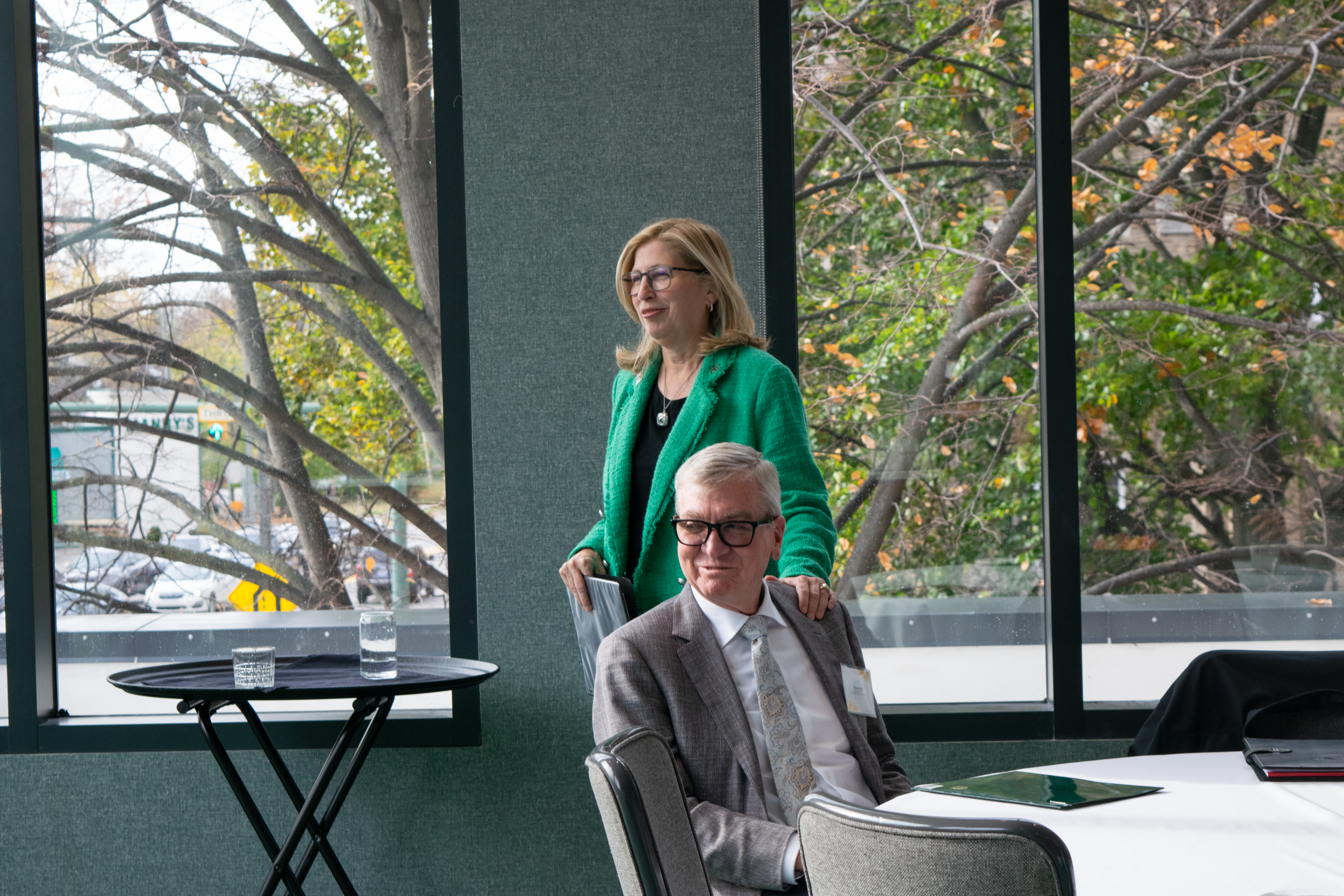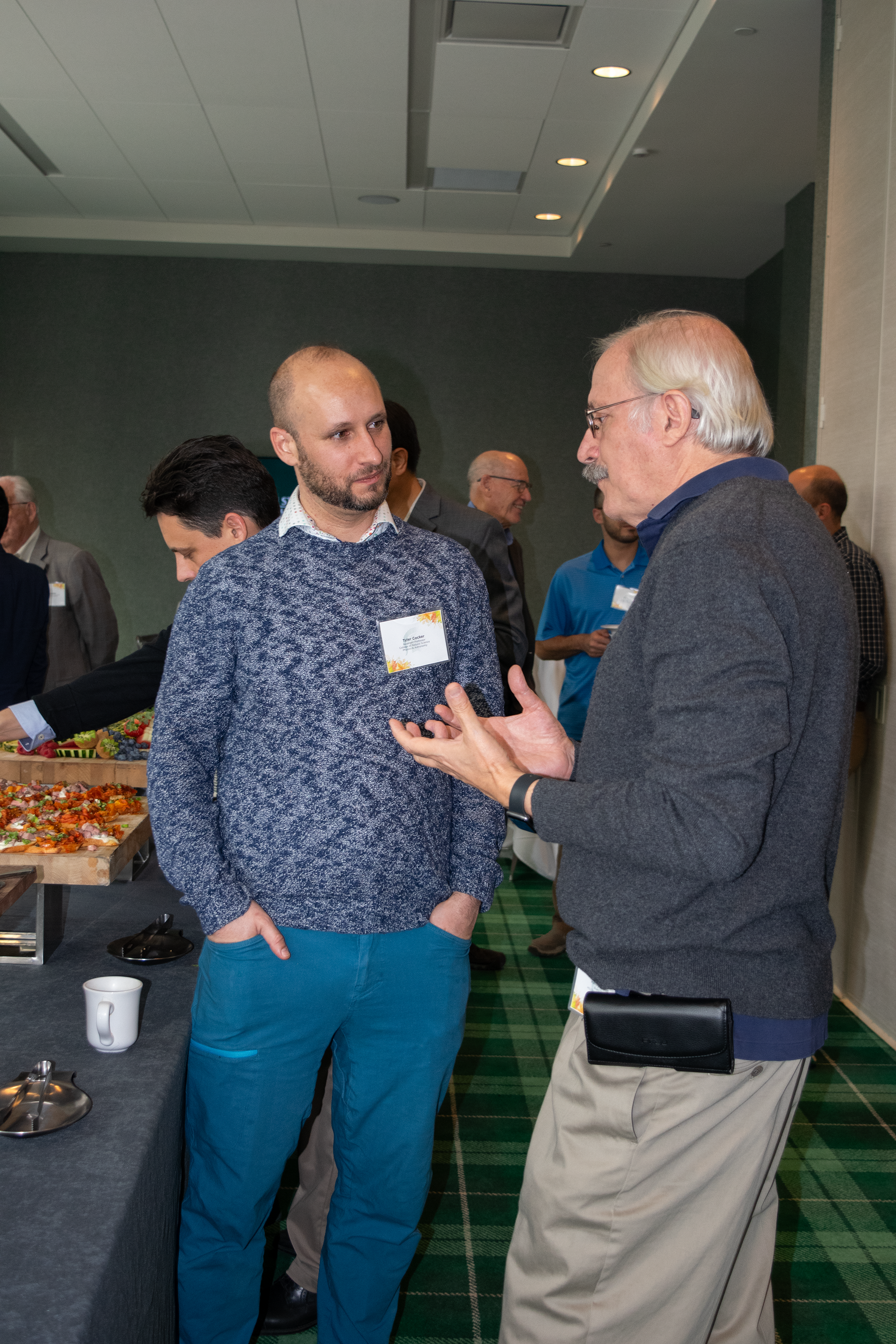The Global Impact Initiative (GII) faculty were greeted with inspiring remarks about leadership given by Vice President for Research and Innovation Doug Gage, Interim Provost Thomas Jetischko, and Interim President Teresa Woodruff recently at the Graduate Hotel in East Lansing. As high-performing researchers, the GII faculty were recruited to meet the recognized Grand Challenges and position themselves and MSU as leaders in research and innovation. Grand Challenges are more than just research priorities, but include very difficult, important, and ambitious projects using science and imagination to solve complex national and global problems.
Interim President Woodruff charged the GII faculty with inspiring words. “Alfred Lord White said ideas won’t keep. Something must be done about them.” Research starts with an idea, and through a culture of innovation and entrepreneurship, MSU can find opportunity and take risks. Through qualitative and quantitative research, GII faculty are encouraged to be role models for their peers. “We are all in it together. We can succeed together,” notes Woodruff.

Interim President Woodruff and Vice President for Research and Innovation Doug Gage, November 3, 2023
This group of tenure-track faculty were recruited to MSU under the Global Impact Initiative to enhance the national and international excellence and competitiveness of MSU as a research university. In 2014, the Board of Trustees approved the Academic Competitiveness Fund to provide resources for recruiting the best and brightest faculty talent from a broad and diverse applicant pool. From this resource, the Global Impact Initiative was launched with a goal to recruit 100 new faculty in some of the most exciting areas of research. Phase two of this initiative kicked off in 2022 and will align new positions with research thrusts outlined in the MSU 2030 Strategic Plan.

GII faculty listen in while being encouraged to be innovators during the Global Impact Scholar Celebration, November 3, 2023.
GII faculty member Bin Chen, an associate professor in the Departments of Pediatrics and Human Development, Pharmacology and Toxicology, and Computer Science and Engineering, is one example of the many successes of this initiative. Chen leads a multi-disciplinary team of scientists who are using artificial intelligence and machine learning to predict how novel compounds, including those that do not yet exist, would act on gene expression in humans to combat disease. Chen describes this approach as different. “Finding novel compounds with new intellectual property might be the best way to get new drugs to the patients,” said Chen.
In the last year, five new faculty were recruited to MSU related to research in molecular imaging and radiotheranostics; microbial science and determinants of environmental sources of greenhouse gases; structural biology and immunology; gene regulation and antibody diversification; and electromagnetics research used in 5G/6G communication, radar and sensing systems.
Next, the initiative will focus on advancing MSU’s positions related to developing next-generation electric vehicle batteries, testing of microchips and other electronics for deep space applications, and the harvesting, purification and application of isotopes used in nuclear medicine, environmental tracing, and material testing, as well as plant and environmental sciences, and health equity.
“These GII faculty have brought new ideas to MSU, and their innovative research continues to keep MSU at the forefront of the most exciting breakthroughs in a variety of fields of study. I have met each of these faculty individually, but to bring them together for the first time was a great moment of pride and made me appreciate just what we have accomplished.” –Doug Gage, VP of Research and Innovation.

GII faculty members Hanne Hoffmann, Jeff MacKeigan, and Kurt Zinn have a conversation during the Global Impact Scholar Celebration at the Graduate Hotel, November 3, 2023

GII faculty get a chance to meet one another during the Global Impact Scholar Celebration, November 3, 2023
